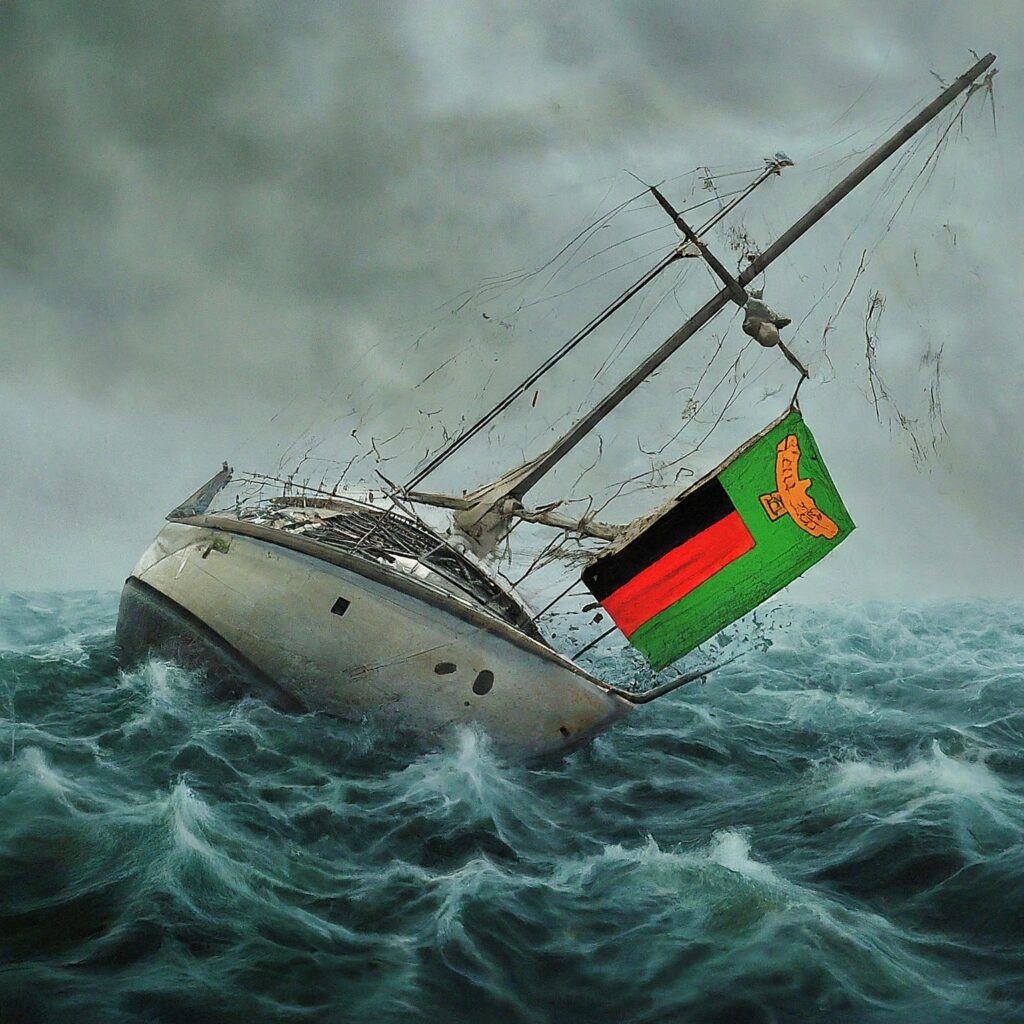
Imagine captaining a ship through a treacherous storm. Every wave threatens to capsize you, demanding constant adjustments to stay afloat. But what if someone kept grabbing the helm, prioritising quick patches over long-term repairs, risking the entire ship for immediate gain? That’s the challenge central banks face, constantly battling political pressure while navigating the turbulent waters of the economy.
Zambia’s central bank, the Bank of Zambia (BOZ), has long been caught in this storm. Their goal has always been like a lighthouse in the distance – guiding ships safely to shore by keeping the economic seas calm and inflation low. Yet, political interference often steered them off course, leaving the ship vulnerable to crashing waves.
But just like wise captains rely on experienced sailors and sturdy anchors, central banks need autonomy to weather the storms. This independence, once a distant dream, has gained momentum in recent decades. Nations are recognising that central banks, free from political pressures, are better equipped to navigate the economic sea, ensuring long-term prosperity for all aboard.
In Zambia, the Bank of Zambia (BOZ) embarked on its own journey towards greater autonomy or independence with the Bank of Zambia Bill of 2022. But before we delve into the potential impact of this legislation, let us first chart the historical course of the BOZ, tracing its establishment, its relationship with the government, and its key milestones in the pursuit of independence.
Setting Sail Towards Stability and Independence
Imagine the Bank of Zambia (BOZ) as a newly launched ship in 1964, following Zambia’s independence. Its mission to chart a steady course, managing the “currency waters” and overseeing the financial “islands” while promoting economic development. Initially, the government acted as a close “escort,” wielding considerable influence over the ship’s direction.

Throughout the years, the BOZ’s relationship with the government was like navigating a dynamic sea. Periods of smooth sailing and collaboration were met with treacherous waters of tension and conflicting priorities. The government, sometimes acting like an overbearing owner of the ship, tried to steer the ship towards setting budget “anchors” and inflation “targets” that often clashed with the BOZ’s desire for price and financial stability. This situation put the President and his government on one side at loggerheads with the Governor and his ship on the other side. As you can expect, the Government who is the “owner” of the ship, would, through the President call for the Governor’s head whenever he so wished and replace him with another captain of his own choosing. Who do you think would suffer in this case? The country of course.
Despite these challenges, the BOZ, determined to be its own captain, steadily pursued greater autonomy. Key milestones mark this journey, viz:
1994: The Financial Sector Reform Act granted the BOZ more freedom to manoeuvre, like adjusting sails and navigating currents independently.
2012: The Bank of Zambia Act strengthened the BOZ’s hull, solidifying its independence and clarifying its mission.
2022: The Bank of Zambia Act, with its focus on limiting the government’s “steering wheel” and reinforcing the BOZ’s mandate, acts as a powerful wind in its sails, propelling it further towards independence.
While the Bank of Zambia Act of 2022 is a landmark piece of legislation, the BOZ’s journey is far from over. Only time will tell if it can navigate the uncharted waters of complete autonomy and achieve its goals. But one thing is certain: the journey towards a truly independent central bank, like a ship charting its own course, holds the potential for a smoother and more prosperous future for Zambia.
Why does independence matter?
Well, think of it like this; when politicians prioritise short-term gains, like boosting employment before an election, they might pressure the central bank to print more money. This might create jobs in the short run, but it also fuels inflation, hurting everyone in the long run.
This quick fix is riddled with hidden dangers. It’s like increasing the speed of the ship without considering the storm brewing on the horizon. Sure, the ship might reach its immediate destination faster, but the inflated “currency waters” will soon become rough, crashing down on everyone in the form of higher prices and eroded savings. This is the time-inconsistency problem- the temptation for politicians to prioritise short-term benefits over long-term stability.
Also, independence matters because it secures the captain’s seat, who in this case is the governor, from being easily removed, leaving the person occupying the seat to concentrate on their job of ensuring price stability and fulfilling the mandate of the central bank. Between 1964 and 1991, the BOZ resembled a ship with a trap door for its captain. Captains – or Governors- were easily being removed at the President’s will and their tenure in office only averaged a mere three years. This created a sense of constant uncertainty and instability. This volatility crippled the BOZ’s ability to chart a steady course for the Zambian economy.
So, how does the 2022 Act achieve independence?
It’s a multi-pronged approach:
- Protection for the captain: The Bill shields the Governor from being easily removed by the President, giving them the stability and security to make tough decisions based on long-term objectives, not political pressure.
- Clear direction: The Bill sets a clear inflation target, giving the BOZ a defined course to chart, free from conflicting priorities.
- Transparency and accountability: The BOZ will be required to clearly communicate its decisions and be held accountable for its actions, building public trust and confidence in its ability to navigate the economic tides.
Will it work?
Only time will tell. However, studies show that independent central banks deliver lower inflation, paving the way for a more stable and prosperous economy. Just look at countries like Chile and South Korea – shining examples of how central bank independence can lead to economic success.
The journey ahead

The Bank of Zambia Bill is a significant step forward, but the voyage towards true independence is just beginning. Can the BOZ effectively resist short-term pressures and prioritise long-term stability? Can it build the trust and communication needed to guide the economy with a steady hand?
These are questions that only the future holds the answers to. But one thing is certain: the world will be watching with keen interest, for the success of Zambia’s central bank could have far-reaching implications, not just for its own economy, but for the global conversation on central bank independence.
- 13 Life Lessons I Learnt as a Teacher - July 23, 2024
- 13 Life Lessons I Learnt as a Teacher - July 22, 2024
- 13 Life Lessons I Learnt as a Teacher - July 21, 2024




Very educative article..
Thank you. Please let us know what sort of content you would like.
Don’t know why I haven’t been able to follow your articles. This is really powerful, candid and on point. The BOZ transposition and trajectory is nicely projected and elaborated especially the ever conflicted autonomy. I just hope the BOZ hierarchy can sight this and foster a possible a consultancy with your company. Thanks for the article, bro Zulu.